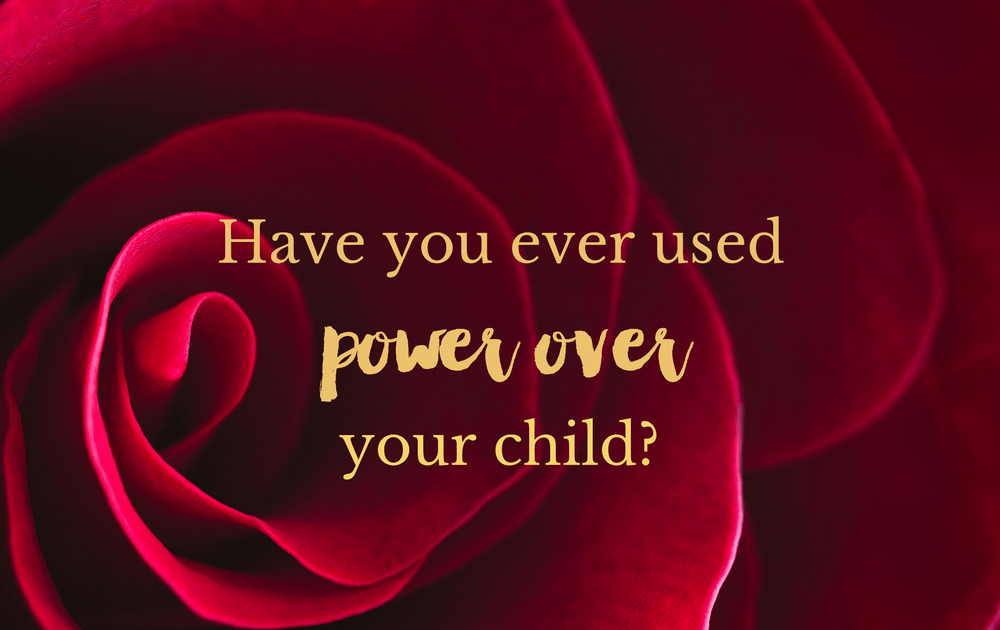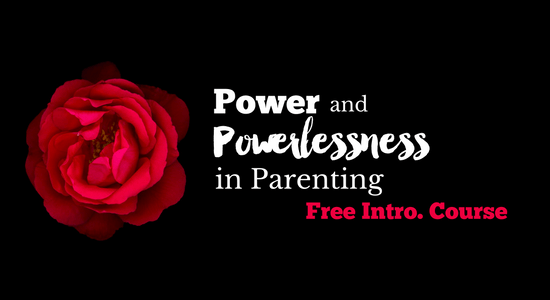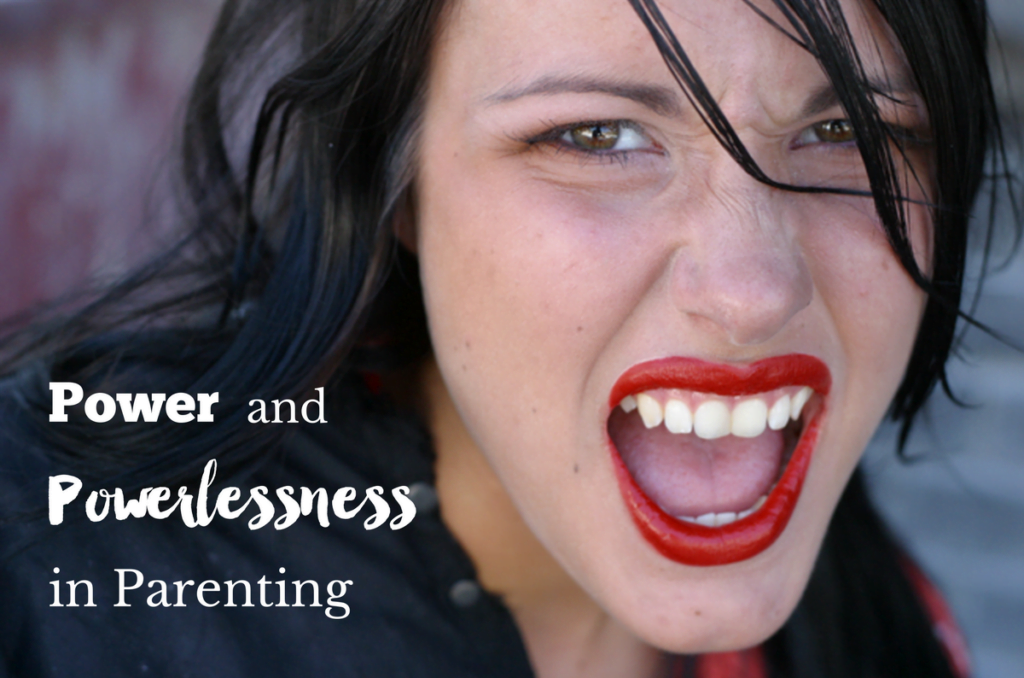Hello!
Have you ever found yourself feeling so incredibly powerless when your child won’t do what you ask,
or won’t stop doing something that you’ve asked her not to,
and you’ve used your greater physical or intellectual power to make her do something?
Or perhaps you’ve wanted her cooperation, and she just doesn’t seem to be willing to cooperate,
and you feel so deeply frustrated, and you just give up and disconnect and dissociate?
I think these can be some of the most painful parenting moments.
Especially when we are aiming to be conscious and compassionate and democratic with our children.
I certainly remember a lot of situations like that when my children were younger.
About five years ago, I got really interested in exploring the issue of power as a woman and as a mother.
And I realised lots of interesting things.

I already knew that it’s when children feel powerless that they do things like hit or bite or throw things, or won’t cooperate.
And I realised that it’s the same for us as adults.
We may think that a child is feeling powerful when he does those things.
But he’s more likely feeling powerless, and at that moment, disconnected.
The same for us. If we ever use our power over our child, it’s generally because we are feeling disconnected and powerless at that time.

But why do we feel disconnected and powerless?
I see a few reasons (and yes, they’re pretty much the same for children too!).
Here are two of them:
1. We aren’t getting our needs for choice and autonomy met.
Remember before you became a parent, and if you wanted to go out, you just got ready and went out?
It’s very different when we have young children, isn’t it?
And even with older children, they may not want to do what we want to do, and that can mean at times we don’t get to do what we choose.
When we repeatedly don’t get choice to meet our needs, we can feel powerless (ditto for our child!)

2. When our child won’t do what we ask, or repeatedly asks us to do things for them, it can remind us of times when we were a child and we didn’t get to choose, and were told what to do.
At those moments, we can feel really big feelings of powerlessness, which feel incredibly painful.
At that moment, we don’t see our toddler asking to be picked up.
We see a screen, with an old school teacher telling us what to do over and over on that screen.
Those old feelings are coming up to be heard and healed.
But we often don’t realise that.
We just feel incredibly powerless.
And it’s then when we can easily slip over into using our greater power over our child.
And then feel deeply sad, or even guilty, afterwards.
I wonder if that resonates with you.
I wonder if that makes sense of why those feelings can sometimes seem SO strong?
I wonder if you sense at that moments that you aren’t really seeing your child there at all?
And that you certainly aren’t feeling the sense of being an adult?

So, from these two reasons, we can start off doing two things so that we’re less likely to avoid using power over our child:
1. Finding ways to regularly meet our needs, so we don’t get to that empty place of being desperate to get our needs met;
2. Getting friendlier and more compassionate with our powerlessness feelings and the child parts of us that come up when our child keeps asking us to do things or won’t do things that we ask.

Over these past five years I’ve explored power and powerlessness deeply.
And last year, I made a course, called Power and Powerlessness in Parenting.
And I’m relaunching it again now.
But this time, I’ve also made a little free intro. course – which comes either as a 26 minute audio or video, or an ebook.
It goes into more detail about cultural beliefs around mothers and power, about those powerlessness sweet spots that I talked about above, and gives 9 tangible things you can do to avoid using power over your child.
You can get the free course immediately by clicking HERE or on the image below.
And you can find out more about the paid course by clicking HERE or on the image below.
Marion


